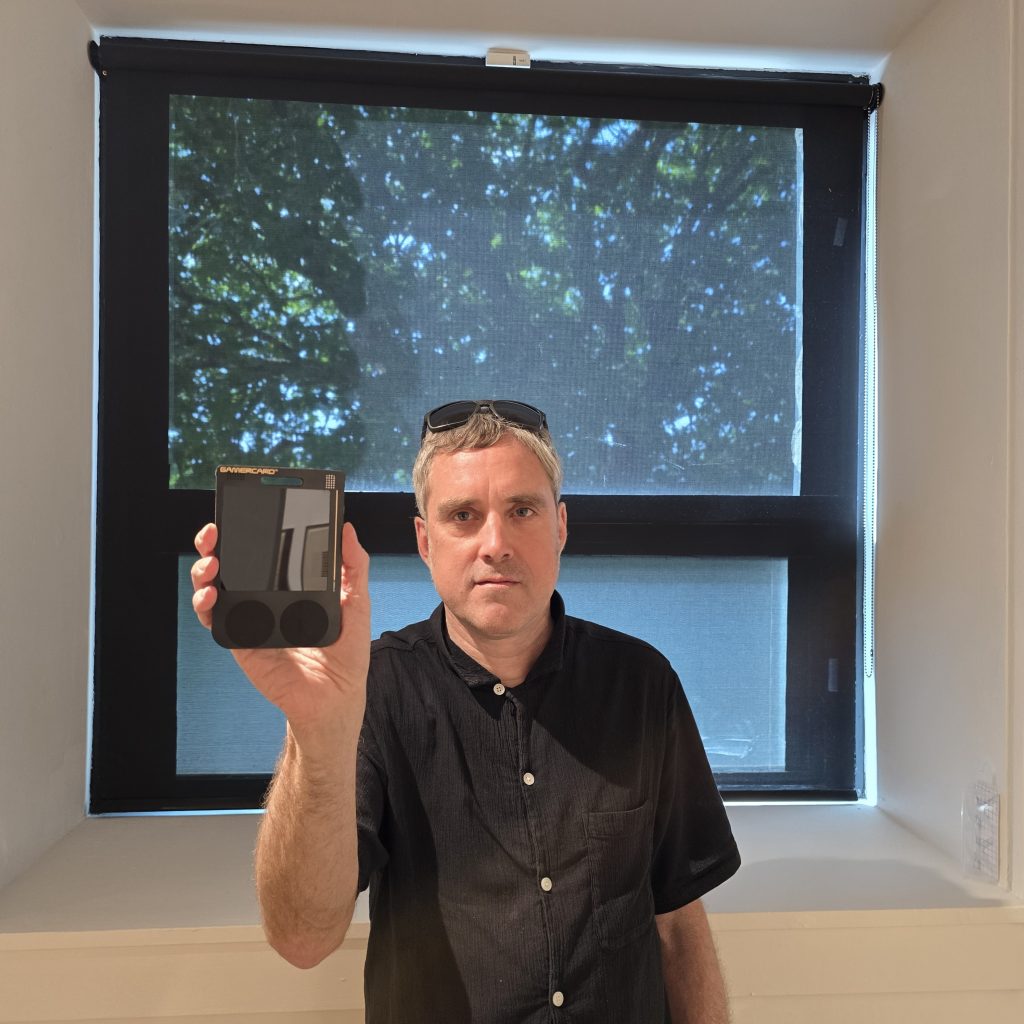Artificial Intelligence
Cyber
Future Telecoms
Materials
Quantum
Wise words and waggishness… February 2026
Reading time: 2 mins
Grant Sinclair talks about developing ideas and the value of mixing engineering with design
It remains one of the most famous names in British computing. For decades, the Sinclair family has been synonymous with invention and a willingness to challenge convention. Now Grant Sinclair, designer, entrepreneur and nephew of Sir Clive Sinclair, is carrying that legacy forward in his own way. But what can he teach today’s spinouts and entrepreneurs about product development, and about taking an idea from the workshop to market?
In the summer, Sinclair launched his wafer-thin GamerCard handheld console, built from stacked printed-circuit boards and powered by a Raspberry Pi. Conceived during lockdown, when factories were shut and tooling was out of reach, it was a lesson in design under constraint, a product engineered from what was available, not what was ideal.
“I thought, how can you make an electronic product without a body casing? That constraint led to the idea of using the boards themselves as structure,” he says.

The result is a device that looks as if it belongs in a design museum as much as an electronics lab. It is minimalist, compact, and entirely self-contained. It is also a study in lateral thinking and persistence.
Sinclair grew up surrounded by invention. His uncle’s home, he recalls, was full of prototypes and half-finished ideas; nothing was ever too precious to be taken apart. “That was the education,” he says. “You learned by dismantling things, by seeing how they worked.”
It was also where he absorbed a certain way of thinking, one that prized curiosity above convention. He tells a story about visiting Clive in the 1990s and finding a set of rollerblade wheels bolted to a bike frame. “He wanted a bike as light as an umbrella,” Sinclair laughs. “The supplier said the wheels couldn’t take a man’s weight, so he tested them himself. That was Clive all over. If someone said it couldn’t be done, he’d do it anyway.”
The lesson stuck. For Grant, design and engineering have never been separate pursuits but two halves of the same problem-solving instinct.
“Clive would always ask, ‘Why does it have to be that way?’” he says. “That idea, question everything, is what still drives me.”
That philosophy has shaped every stage of Sinclair’s career. When lockdown closed factories and stretched supply chains, it didn’t stop him designing. It simply forced him to rethink how products are made.
“If you can’t get something tooled, then don’t tool it,” he says. “Work with what you can access.” The GamerCard’s stacked-PCB design came directly from that approach, a reminder that innovation often begins with limitation.
The same spirit has guided his thinking on sustainability. By stripping away excess materials and reducing the component count, Sinclair’s products avoid the usual clutter of housings, plastics, and fastenings.
“I try to keep things as simple as possible,” he says. “Fewer parts mean less waste, and you end up with something more elegant anyway.”
Lately, his curiosity has turned towards medical technology. As a lifelong asthmatic, he’s been sketching ideas for compact inhalers that people could wear rather than carry. “I’ve nearly died a few times from not having one with me,” he admits. “Why not make it [waves a traditional blue asthma inhaler] small enough to wear around your neck?”
These are not just product ideas, they’re extensions of the same thought process that once produced pocket calculators and lightweight bikes. Question, simplify, test, repeat.
“That mix of creativity and technology, that’s where the good stuff happens.”
Grant Sinclair
Yet for all his resourcefulness, Sinclair admits that bringing hardware to life in Britain can still feel like an uphill climb. Prototyping is slow, manufacturing costly, and too often the system seems designed for the cautious rather than the curious. “You should be able to get something made on your doorstep,” he says. “But it’s rarely that straightforward.”
He believes Britain could do more to back its inventors, not just with funding, but with faster routes from idea to prototype and better access to local facilities.
“There’s huge talent here,” he says. “It just needs an easier way through.”
Still, he’s quick to point out the advantages. Cities such as Bristol, where design, engineering, and the arts overlap, offer a culture of collaboration that larger industrial centres sometimes lack. Sinclair previously spent six years in Bristol running Iain Sinclair Design, the company he founded to promote his father’s inventions, including the Cardsharp folding knife and EON Extreme, a rechargeable floodlight with power chip LEDs.
“You’ve got everything you need in one place,” he says, adding that he is keen to return to the city to live and work. “That mix of creativity and technology, that’s where the good stuff happens.”
What endures, more than any single invention, is a way of thinking. For Sinclair, it is about keeping that restless curiosity alive.
“Nothing is set in stone with product development,” he says. “Whether it’s hardware or software, there’s always another way.”
It’s an idea that speaks as much to today’s entrepreneurs and inventors as it does to engineers or designers, a reminder that ingenuity often begins with limitation, not abundance. The lesson is simple, and enduring – stay curious, challenge assumptions, and never stop experimenting.
If British innovation has a signature, this might be it, shaped less by budgets or blueprints than by a quiet determination to ask, as the Sinclairs always have, why not?

Working as a technology journalist and writer since 1989, Marc has written for a wide range of titles on technology, business, education, politics and sustainability, with work appearing in The Guardian, The Register, New Statesman, Computer Weekly and many more.
Quantum
Reading time: 10 mins
Quantum
Reading time: 10 mins
Future Telecoms
Reading time: 2 mins
Quantum
Reading time: 11 mins
Robotics
Reading time: 1 mins